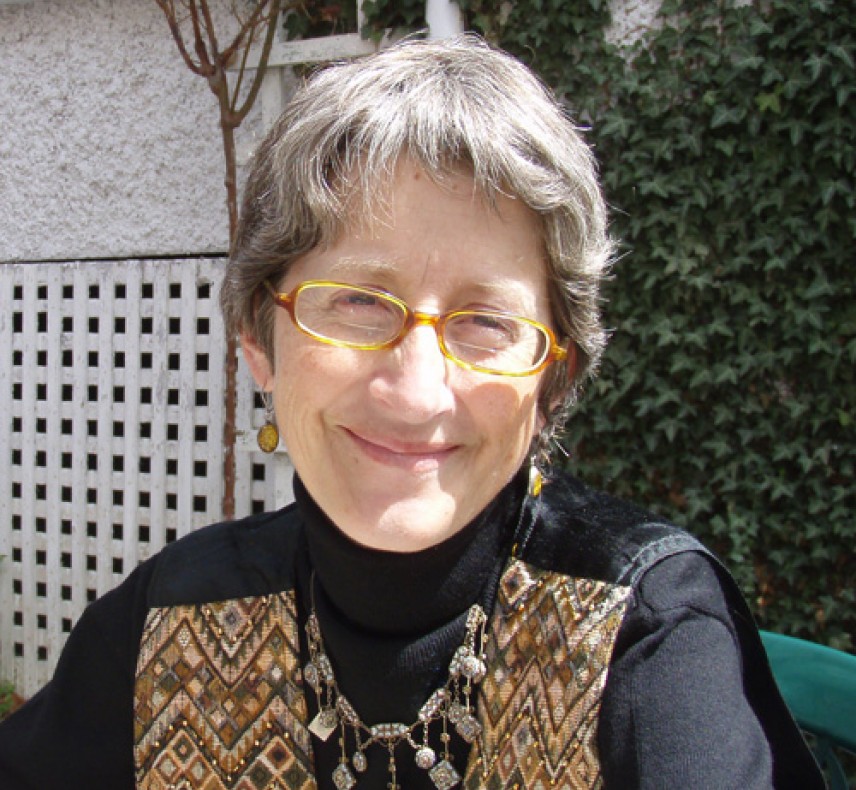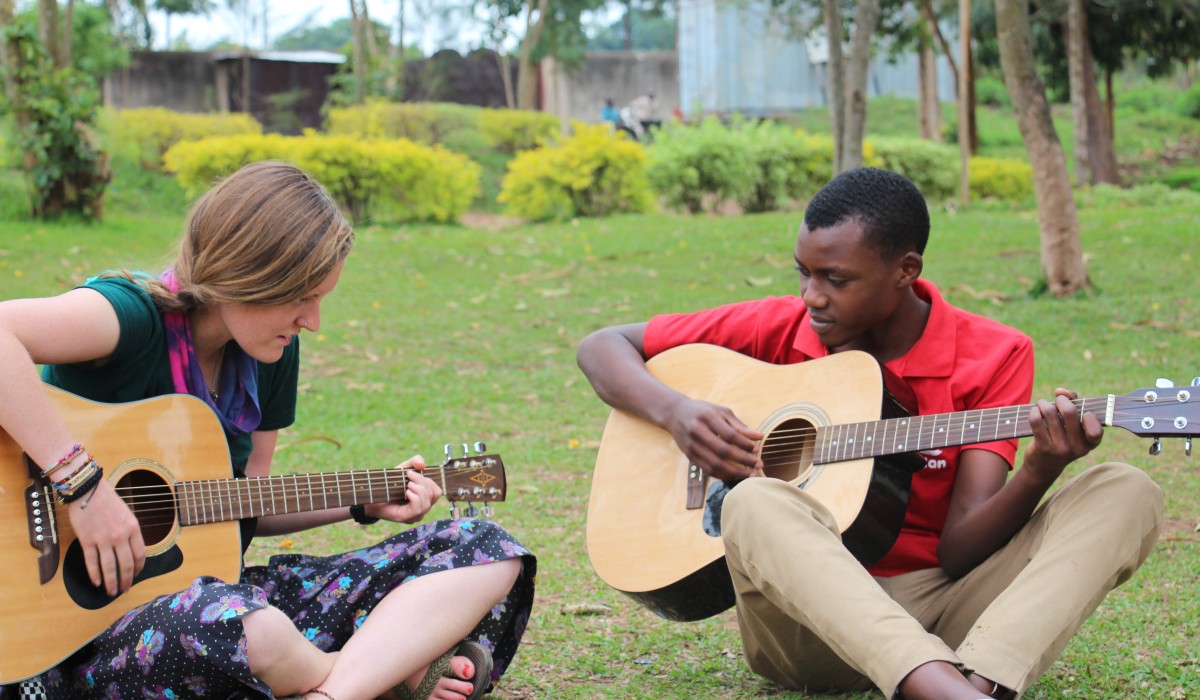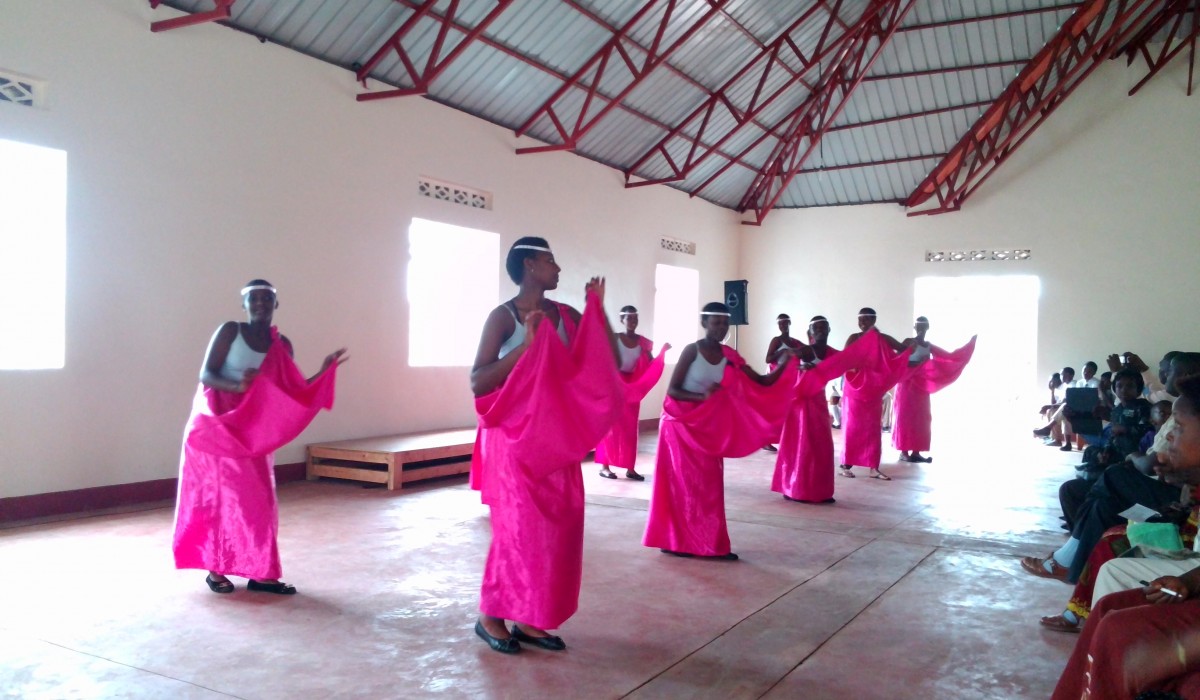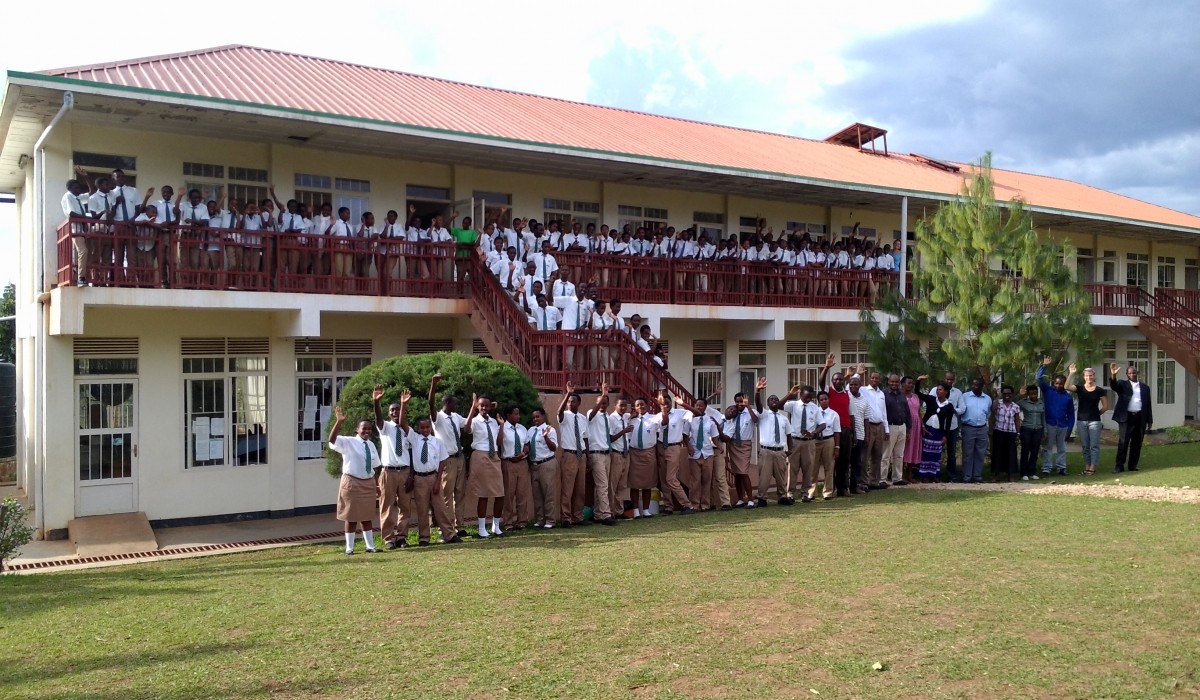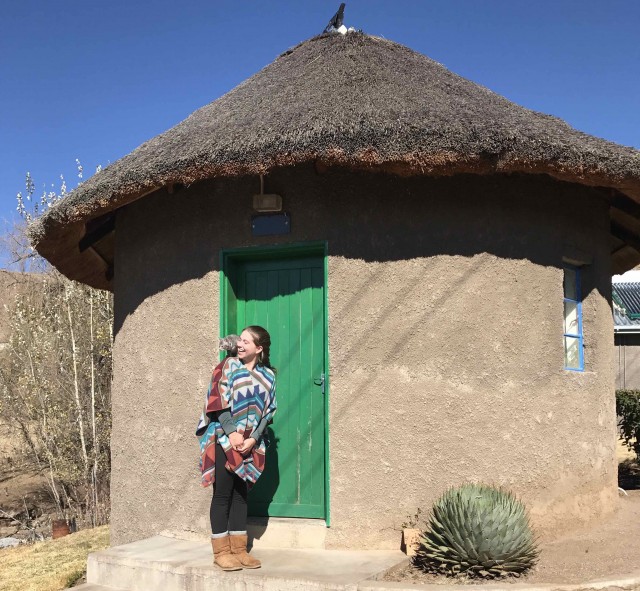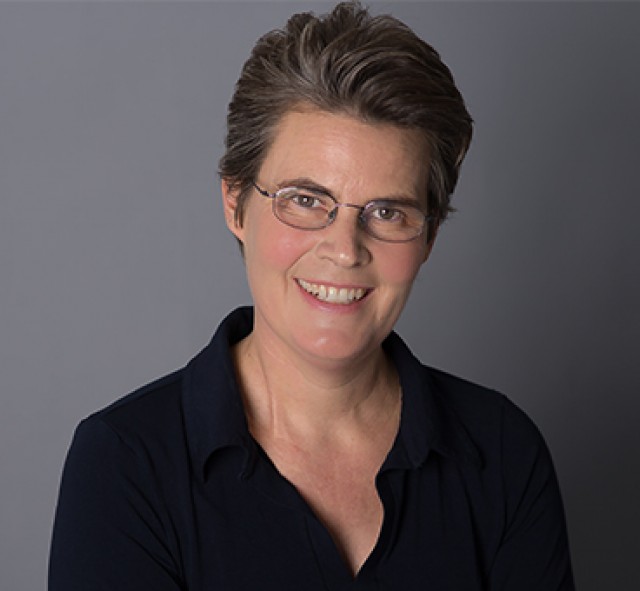In one of the smallest countries on the African mainland, Robin Strickler, Wittenberg class of 1983, is helping to provide high-quality secondary education as founder of the Rwanda School Project.
Eight years ago, her initiative led to the opening of the Rwamagana Lutheran School with a mission to “offer a secure and nurturing school environment that transforms vulnerable youth into future leaders and problem solvers who champion environmental sustainability and social change.”
Currently the school’s director, Strickler focuses on professional and program development, future planning, donor connections, overall performance, volunteer recruiting, management, hiring, and local board development, while the principal runs much of the day-to-day operations.
A music education major with a minor in voice, who also pursued several classes in East Asian Studies, Strickler has also never been a stranger to service. Heavily involved in Weaver Chapel Association, Bread for the World, and in performing with the Bach Chorale during her days at Wittenberg, she went on to earn her master’s degree in English linguistics from the University of Wisconsin-Madison and started teaching music before building a career in service.
She now takes us inside her personal and professional journey through a special Q&A.
Wittenberg: You’ve been quite busy since leaving Wittenberg. Tell us a little about your career and where it has taken you.
Strickler: Mary Catherine Bateson wrote an interesting book called Composing a Life, and the premise was to look at the lives of six women who constructed their lives and careers around their husbands' careers, childbirth, moving, etc. She said that women have had to get good at composing a life that isn't necessarily what we planned, and I think that was true for me. I started teaching middle school music, and then I sort of had an accidental career in developing after-school programs in Madison, Wisconsin, and in Boulder, Colorado, while following my first husband Marc Heeg (Wittenberg class of 1983). I also did some personnel/human resources work and taught English as a Second Language (ESL) to foreign adults. In 1996, I went to Japan to teach at Kansai Gaidai University for eight years. I loved being there, and I loved discovering the fantastic culture of the Kansai area.
Wittenberg: Tell us about working at the Lutheran school in Rwanda and founding the Rwanda School Project.
Strickler: I divorced in 1999 while I was in Japan. Later, I was home in Virginia for a visit to my parents’ and met my future husband, John Rutsindintwarane, a Lutheran pastor from Rwanda. He was getting his master's in conflict transformation at Eastern Mennonite University, and we met when Muhlenberg Lutheran Church was welcoming a refugee from Rwanda. We emailed and telephoned a lot, and two years later we married in Berkeley, California. John's work is in faith-based community organizing, empowering people to improve their own communities after the genocide of 1994. He had grown up in a refugee camp, and secondary education was only available to him because of a scholarship. That was what motivated me to think about starting secondary education in Rwanda. I pitched the idea to several Lutherans and a Rwandan Catholic priest (who is our principal today). We founded The Rwanda School Project in 2005.
My husband is a remarkable guy - an ordained pastor doing faith-based community organizing. He works with villages and local leaders as well as district government officials to help communities organize to eradicate poverty and develop their own leaders. It's a very effective empowerment model. His organization's name is PICO-Rwanda, and he works with Lutherans, Catholics, Adventists, Pentecostals, and Muslims.
Meanwhile, someone suggested I meet with educators from EL Schools (formerly Expeditionary Learning). What they were doing in educational design and pedagogy knocked my socks off, and I was excited that it was flexible enough to be used in other cultures. That's the model we've followed, and it continues to energize us and help us aim high.
Wittenberg: What makes you most proud about the school and life in Rwanda? How did the school develop?
Strickler: I was really committed to an environmentally sustainable model, so I learned about permaculture gardens, biogas composters, compost toilets, and solar power. Today we have 4.6 kw of solar power, 110,000 liters of rainwater catchment, biogas toilets that provide part of the methane gas for some of our cooking fuel, and we have cows and chickens on campus. (Our eggs are amazingly tasty.) None of that has been very easy because we've had to learn by doing, and sometimes by failing. But we've worked hard to create a good community at our school. We started with three teachers and 24 students - 12 street boys and several older students who hadn't been able to afford school. Our youngest 7th grader was 16, and the oldest was 20. We started with a field full of bananas, and today, thanks to a lot of people who have helped us, we have a classroom building, two dormitories, a science lab, and a dining hall, which triples as our church and auditorium.
Today, we also have a mix of wealthy students who arrive in big cars and students in need who come with everything packed on their heads. We're very thankful to people who sponsor neediest students. There are a lot of kids coming from public schools that are on split shift and still have 60 or 80 students in a classroom - they often are from homes without running water or electricity, and school fees are beyond their reach. We're proud that after three graduating classes, all of our students have passed national exams and about 80 percent are attending tertiary education, many of them the first generation to do so. The genocide was very disruptive to family continuity - a lot of our early students would ask each other, "Do you have parents?" Cultural traditions like crafts, dance, music, wild herb harvesting, and family history were lost for many families, so the government and schools have encouraged culture clubs and visits with elderly people. Our school has a culture dance troupe, and it is amazing.
Wittenberg: What have been the most difficult parts of working at a Lutheran school in a foreign country?
Strickler: I guess I would say in the early years, people were so traumatized, and there was so much that had to be done. We're incredibly lucky to have a government that has pushed and pushed us to improve. They say poverty is a crisis, not business as usual, and one of the worst things you can say about someone is that they're "not serious." In the 12 years I've been here, Rwanda has gone from six percent with electricity to 41 percent. People who used to walk five kilometers to carry a 40-pound jerrican of water can now mostly find a tap within one kilometer. Rwanda has decreased maternal mortality by 75 percent, and secondary education access has gone from 15 percent to more than 50 percent who start middle school. At the same time, education, health care and transport, not to mention population pressure, all bring huge pressures to development. But we keep working on it. We want our students to be strong in character and strong academically, literally the future leaders of Rwanda. Going to a Lutheran (or Anglican or Presbyterian) service in Rwanda is pretty different in terms of music. At our school, Sunday services are full of drumming and dancing, and when I come back to the United States, I really am shocked that people stand still in church.
Wittenberg: Do you plan to return to the U.S. once you retire?
Strickler: Yes, and no. I will certainly be there a lot, maybe most of the time, but now I'm a dual citizen of both the U.S.A. and Rwanda, and I have to come back to Rwanda often! But health care here is still behind.
Wittenberg: What prepared you for this work?
Strickler: I think all the jobs I've had previously helped me to do this job. I had experience in education, experience in administration, and in personnel, but I've had to learn about how to take care of chickens, how to negotiate and understand construction projects, how to navigate Rwandan law, how to do fundraising, how to manage Rwandan culture (actually, Japan helped a lot with that...many similarities), and how to avoid malaria. I've learned about biogas digesters, six different kinds of bananas, how to drive a land cruiser on dirt roads, use four-wheel drive (goats, motorcycles, pedestrians), and how to use a jerrican of water for a day, including for flushing and bathing. Rwanda is a much easier place to live than it used to be, so now the big challenge is adjusting to the pace of change in a rapidly modernizing country while not forgetting that thousands of people are still struggling.
Wittenberg: What impact has Wittenberg had on your life?
Strickler: Wittenberg is entwined in my story in a lot of ways. My connection to Japan really began with my roommate Hiromoto Reiko (who was at Wittenberg in 1978) and was furthered by my friendship with Sachiko Kitao (who received her master's in sacred music at Wittenberg). That led me to study Japanese and other East Asian studies courses with Dr. William Walters and (Professor Emeritus) Dr. Jim Huffman, among others. When I went to Japan 15 years later, Reiko-san was my co-worker, and Sachiko-san was almost my neighbor. We traveled together and spent Christmas day together and attended concerts together. One of the most joyful and heartbreaking stories of my life is that years later in 2012 when I was in Rwanda, Sachiko planned to come and visit me and the school, but that season she was diagnosed with pancreatic cancer. She took the initiative to gather Kathy Reier and Dianne Russell, my best friend, and me in New York City (we were all at Wittenberg together), and we spent three days eating, talking, looking at art, playing music, and sitting together. Sachiko's cancer was still in the beginning stages, but we knew when we said good-bye at the airport that it was really good-bye. A month later, she donated part of her life savings to help us build the cafeteria at our school in Rwanda. When our students are doing traditional dances there and the drums are pounding up to the rafters, I think about how she would be happy to hear and see that. Sachiko embodied Wittenberg's motto of "Having Light, We Pass It On To Others," and that is always a good thing for me to reflect upon.
Strickler has two daughters. One recently graduated from the City University of New York with a degree in Urban Studies. The other works in Dayton, Ohio, and is attending nursing school part-time.


